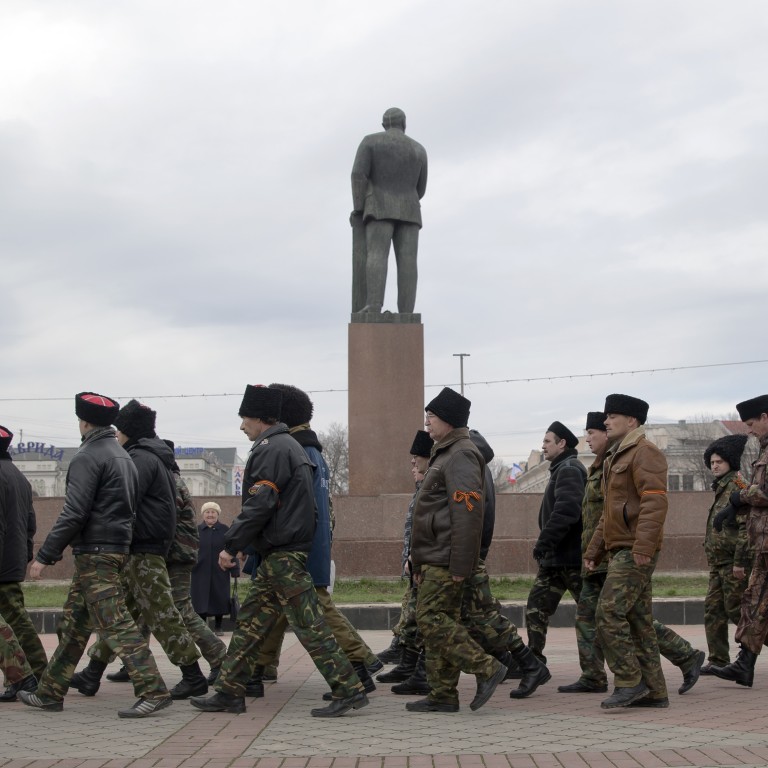
Analysis | Referendum in Crimea brings anxiety to China
Paul Letters says Crimea's planned referendum has put Beijing in a quandary, whatever the result, and raised fears about the idea spreading
Russia has taken us back to imperialism by occupying a neighbouring country, but is Moscow's support for a vote for Crimeans to determine their own destiny such a terrible idea? It is if you're the government of China.
Some misplaced arguments contend that a referendum is simply a totalitarian tool. No leader presses upon Western nerves more adeptly than President Vladimir Putin. The build-up to Sunday's planned referendum includes worrying reports of Crimean Tatars, who are generally Islamic and fearful of Russia's intentions, having their doors marked with a cross and their passports confiscated - meaning they will not be able to vote.
Mainstream Western media organisations have likened the situation to Hitler's use of referendums. The four major plebiscites he held were used to ratify new powers or territory grabbed by the Führer. However, others suggest it's usually Western-style democracies that favour the use of such a democratic weapon. Referendums are used widely in Europe; Switzerland, for example, holds several a year. So, in seeking to draw at least parts of Ukraine away from Europe, is Russia being European in its methods?
Scotland has a referendum for possible independence coming up - but another European democracy isn't happy about this. Spain is not only against a vote to decide the future of the Catalan and Basque regions, its government has indicated it may veto Scotland's application for entry into the EU for fear of encouraging its own separatist movements.
Referendums are not un-Asian. They have been used many times in the Philippines, South Korea and Cambodia over the years. In 2004, Taiwan held a referendum where more than 90 per cent of voters displayed mistrust of mainland China - but fewer than the required 50 per cent of the electorate turned up, so the vote was declared invalid.
Crimea's referendum, asking whether people prefer greater autonomy within Ukraine or union with Russia, will be held only in the province of Crimea - as opposed to the whole of Ukraine, as the national constitution demands. Even an outcome that isn't rigged may well favour union with Russia.
But it's the principle rather than the result that matters to China, which seeks friendly relations with both nations. China's relationship with Ukraine includes the lease of 5 per cent of the latter's territory - a sizeable area - for agriculture. Regarding arms exports, China is Ukraine's biggest customer, but Russia is one of China's biggest suppliers, not to mention its key ally in the UN Security Council.
Since the Ukrainian crisis began, China's officials have been slipping on the ice. Foreign ministry spokesman Qin Gang obliquely displayed China's discomfort in stating that "China has always upheld the principles of diplomacy and the fundamental norms of international relations". You could feel the Politburo squirming in their seats.
Russia's occupation of a foreign nation presented China with a diplomatic quandary, but a vote which allows self-determination will bring Beijing greater discomfort. Were such an idea to spread, China would have a lot to lose - Xinjiang , Tibet , Inner Mongolia - and nothing to gain: Taiwanese mistrust is not about to disappear.

